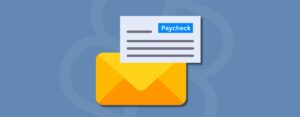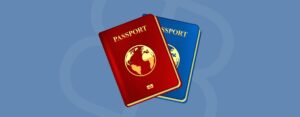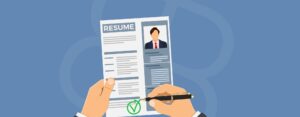What Proof Of Income Is Needed For A Mortgage?

When it comes to applying for a mortgage, one of the key factors that will influence an application being approved is your proof of income. Mortgage lenders assess your application by calculating your mortgage affordability, of which is largely based around your financial income and outgoings. As part of this process, they will typically request some form of ‘proof of income’ alongside any additional documents, before approving your application.
If you’re wondering exactly “What counts as proof of income?” or even “What proof of income is needed for someone who is self-employed?” – we’re here to help. In this guide, we explore all the essential information and documents you’re likely to need to secure your mortgage application approval.
Short on time? Watch this helpful video below:
- What Do You Need to Apply for a Mortgage?
- Bank Statements and Payslips
- What Your Payslip Must Show
- What Your Bank Statements Must Show
- Other Sources of Income, Including Benefits
- Photo ID
- Proof of Address
- Proof of Income
- Getting a Mortgage With a New Job or Your Own Business
- Outgoing Finances
- Proof of Employment for a Mortgage
- Can I Still Get Denied a Mortgage if I Provide All of the Above Information?
- How to Improve the Likelihood of Having Your Mortgage Approved
- How Boon Brokers Can Help With Your Mortgage Application
What Do You Need to Apply for a Mortgage?
Knowing exactly what you need to apply for a mortgage can speed up the process considerably. Typically, lenders will request to see a specific set of documentation, and these usually include:
- Proof of income – payslips or tax returns
- Bank statements – typically the last 3 – 6 months
- Proof of funds – finance available for a deposit
When applying for a mortgage online, lenders may ask for digital versions of these documents.
Bank Statements and Payslips
Most lenders will require you to provide between 3-6 of your most recent payslips as part of your mortgage application. Depending on the frequency of your payslips, this number could vary.
There are some lenders who may only require a single most recent payslip or a signed employment contract as proof of employed income. As such, if you have recently started a new job and are looking for a mortgage, then using a whole-of-market broker – such as Boon Brokers – can help you find a lender willing to accept contracts as proof of income for your mortgage application.
In addition to payslips, bank statements for mortgage applications are ordinarily required. If you are self-employed, the lender may also ask for your business accounts.
How Many Payslips for a Mortgage?
The standard requirement is usually 3 to 6 months of payslips for a mortgage in order to prove a stable income. However, how many payslips for a mortgage application will directly depend on your payment frequency. For example, if you are paid weekly, you may need to provide more payslip than someone who is paid monthly.
It’s always best advice to first confirm with your lender or broker to ensure you have the right documentation ready before proceeding with your application.
What Your Payslip Must Show (As Required From the Majority of Lenders)
Your payslips must show:
- Your net pay
- Pay date and tax period
- Any bonuses, overtime or commission
- The address that matches your application (if your address is included).
- The same employee’s name as the name on your mortgage application.
What Your Bank Statements Must Show (As Required From the Majority of Lenders)
What your bank statements must show:
- A full month’s statement for however many months are requested from the lender.
- Bank account and sort code numbers.
- A running balance.
- The logo of the bank/building society.
- Name of applicant(s) with full address.
Other Sources of Income, Including Benefits.
If you are reliant on any other sources of income for your mortgage application, then you must provide additional proof of income through payslips or bank statements. Some lenders may also accept certain types of benefits as income, including:
If you’re considering getting a mortgage on benefits, or with added benefit funds, you should check with your lender to see which benefits they accept. Some lenders are more flexible than others when considering a mortgage application on benefits, and so working with a broker can help you find a lender that best suits your financial situation.
Universal Credit, Working Tax Credits and Child Tax Credits
Some lenders will accept Universal Credit, Working Tax Credit, and Child Tax Credit as part of your proof of income. In truth, eligibility for this varies a lot, and so it’s important to check with your lender or broker before completing your application.
Working Tax Credits
There are lenders who will allow Working Tax Credits to be used and count towards your overall mortgage affordability. However, you will still need to provide a recent bank statement or letter of proof to be eligible.
Disability Living Allowance and Personal Independence Payment
Specific lenders may consider Disability Living Allowance (DLA) or Personal Independence Payments (PIP) as proof of income. However, if you rely on these benefits in your affordability mortgage calculations, speak to a broker to find a lender who will accept these additional incomes as part of your mortgage application.
Pension
Retired applicants can still apply for mortgages. As such, your pension income can be used with some lenders to support your mortgage applications. Lenders may request pension statements or bank statements to verify this income.
See What Our Clients Have To Say...
Photo ID
You will need to provide some form of photo ID. This allows lenders to comply with money laundering regulations and also protects them against fraud.
The types of photo ID that are generally accepted are:
- UK passport or photocard (signed).
- EU photo-card driving licence (full or provisional).
- A national identity card.
Proof of Address
Proof of address for mortgage applications is also required. Lenders will typically require at least two of the following documents:
Proof of Address Lenders May Require
-
Latest utility bill.
-
Bank or building society statements (less than three months old).
-
Latest council tax bill.
-
Your latest HMRC tax demand.
-
Photocard driving licence or an older format driving licence.
-
Council tax demand letter (the most recent).
Proof of Income
Your proof of income is essential in any mortgage application. It helps mortgage lenders assess your overall affordability and will determine if you are eligible for the loan. Generally, lenders will accept the following documents as proof of income for mortgage applications:
- Two of your most recent P60 documents from the past two years.
- Payslips from the past three months or more.
If you are self employed, or own your own business, proving your income can be more difficult. Lenders may request tax returns, business accounts, and additional bank statements to verify your income.
Unsure about your Income? Speak with our Fee-Free Advisers.
Getting a Mortgage With a New Job or Your Own Business
Starting a new job or setting up your own business can add additional hurdles to securing a mortgage. The simple reason behind this is that you may not have enough payslips or evidence for lenders that definitively acts as proof of income. However, there are lenders who will accept other types of proof of income.
Working with a broker who specialises in mortgages for self-employed workers and new job applicants can help discover lenders that will match your specific circumstances.
Outgoing Finances
When the lender assesses your mortgage affordability, they will review your outgoing finances. This includes any regular outgoing payments and discretionary spending.
Since the Mortgage Market Review in 2014, lenders have adopted much stricter assessment criterias with more accurate methods of calculating affordability that take all outgoings into account. Previously, mortgage approvals were primarily based on income alone which led to many borrowers struggling to make repayments. This new approach ensures applicants can truly afford the mortgages they are applying for, taking a holistic look at their financial standing.
The Types of Outgoing Finances that Lenders Will Request Details of Are:
The lender will review your bank statements to see what the disposable income is each month. Expenditures – this includes socialising, buying clothes and other outgoings – will be reviewed to determine how much you can afford to pay off your mortgage loan, each month.
In the months leading up to your application, you should try to cut down unnecessary spending, so that you are able to show how much you can afford to pay when you do get your mortgage. However, it is important to be realistic about your outgoings, so your spending must be sustainable for the foreseeable future, at least until a point where you are earning more money.
Proof of Employment for a Mortgage
When you apply for a mortgage, lenders will ask for your employer’s contact details to verify your employment status and income. Additionally, they may also ask your employer to confirm your salary, bonuses, and existing allowances that have been listed in your mortgage application.
Any discrepancies found in this information could result in your application being declined, or having a reduction to the loan amount that the lender is willing to provide.
If you are applying for a mortgage without employment, some lenders will consider alternative income sources. These include, investments, pensions, self-employment earnings, and sometimes benefits.
The mortgage lender will usually also ask for confirmation regarding:
Proof of Income Lenders May Require
-
How long you have been employed by them.
-
What your job position/role is at their company.
-
Job security including factors such as whether you are on a short-term contract or are on a probationary period.
-
If you have worked for the employer for under two years, the lender may also request information from your previous employer too.
Can I Still Get Denied a Mortgage if I Provide All of the Above Information?
Providing all the required documents will improve your chances of getting a mortgage, but lenders may still decline your application based on the details in those documents. If you cannot provide a standard proof of income, securing a mortgage will be more difficult. A no proof of income loan is rare, though some lenders may accept alternative forms of income.
Mortgage applications can be declined for a wide range of reasons, such as:
The Details You Provided in the Application Do Not Match the Proof
If you state a certain amount of income and the proof you provide does not match the amount you claimed, your mortgage could be declined, or the loan amount could be reduced.
Sometimes, details such as bonuses that you regularly receive but are not guaranteed in your contract can be seen as a lower income because the lender wants to see guaranteed income.
Outstanding Debt
One of the main considerations for lenders when calculating an applicant’s affordability is your current outstanding debt. Lender will look at your mortgage debt against outstanding debt, and even if you are consistent with repayment of loans, there is a chance it will still affect your mortgage application.
Typically, lenders will view applicants with high levels of outstanding debt as high-risk loans. Store cards, credit cards, car loans, and personal loans are all factored into your affordability assessment.
In the time leading up to submitting your mortgage application, it is best practice to actively reduce your outstanding debt as this will increase the likelihood of your mortgage application being approved.
But can you get a mortgage with debt? Well, having outstanding debt will not automatically fail your mortgage application. Instead, if your income can still sufficiently cover your debt repayments and other financial outgoing commitments, there is a good chance you will still qualify for a mortgage loan.
Credit Rating and Financial History
Your financial history, credit score and mortgage eligibility are closely linked. Lenders will evaluate your credit history to determine your risk level. As such, where a few missed payments may not necessarily result in a massively negative way, if you have consistently missed payments, CCJs, or have bankruptcy on your credit file, these factors will definitely impact your mortgage application.
In general, recent credit and financial history will carry more weight in your application than older ones. However, there are bad credit mortgage lenders who are more flexible on credit ratings and scores, though they often offer higher interest rates due to the increased risk as a lender.
It is always a good idea to first check your current credit information using credit reference agencies such as; Equifax, Experian, or TransUnion.
If you have any adverse credit issues, you could delay your mortgage application, allowing you some extra time to improve your credit rating. An additional demonstration that shows you are making consistent and regular repayments.
Financial Association
A common reason mortgage applications are declined is actually due to any financial links. For example, if you are financially associated with someone who has CCJs, bankruptcy or missed payments on their credit history, this will be looked upon as concerning for potential mortgage lenders.
In order to be financially associated with somebody, you will usually have a financial connection such as a joint account, loan or other type of finance.
Want to learn more about financial association? Read our blog on – Why Your Mortgage Application May Be Denied – for all the information you need to know.
How to Improve the Likelihood of Having Your Mortgage Approved
If you’re worried about “how to get a mortgage approved”, then focusing on improving the main factors that lenders will be looking to assess is the best place to start. For example, if your credit score is less than ideal, you could focus on improving your credit history and start making payments frequently and on-time. Managing your outgoing will also increase your favorability amongst lenders. Reducing any unnecessary spending and high-risk transactions can help your bank statements look more reliable to lenders.
If you’re able to save for a larger deposit, then this will also significantly help you get approved for a mortgage. In addition, this will also reduce the interest rates on your mortgage, as your LTV (loan-to-value) would be much lower when comparing a 20% deposit to a 10% deposit.
Your income is the main contributor that will most likely affect how much you can borrow. As such, if you’re due a pay rise in the near future, it might be better to wait until your new payslips accurately reflect your new financial standing.
How Boon Brokers Can Help With Your Mortgage Application
There are many different factors that are taken into account by mortgage lenders when they are deciding whether to approve a mortgage. By speaking to a mortgage broker such as Boon Brokers, you will be able to get advice on what proof of income is acceptable and how to find the best deals based on your income and other affordability calculation details.
Contact Boon Brokers today for free, whole of market, impartial mortgage advice.
Need Mortgage Advice?
Submit an Enquiry
Gerard BoonB.A. (Hons), CeMAP, CeRER
Gerard is a co-founder and partner of Boon Brokers. Having studied many areas of financial services at the University of Leeds, and following completion of his CeMAP and CeRER qualifications, Gerard has acquired a vast knowledge of the mortgage, insurance and equity release industry.Related Articles
- What Documents Are Needed For A Mortgage?
- What Should I Ask When Buying A House?
- Should I Use A Broker Or Go Direct?
- How Much Deposit Do I Need For A Mortgage
- Advantages Of A Mortgage Broker
- How To Improve Your Chances Of Getting A Mortgage
- How To Get A Mortgage With Bad Credit
- Everything You Need To Know About Buy To Let
- The Mortgage Underwriting Process
- What Is A 100% Mortgage
- Why Buy A Home In Norwich?
- Reasons Why Mortgage Applications Are Declined













